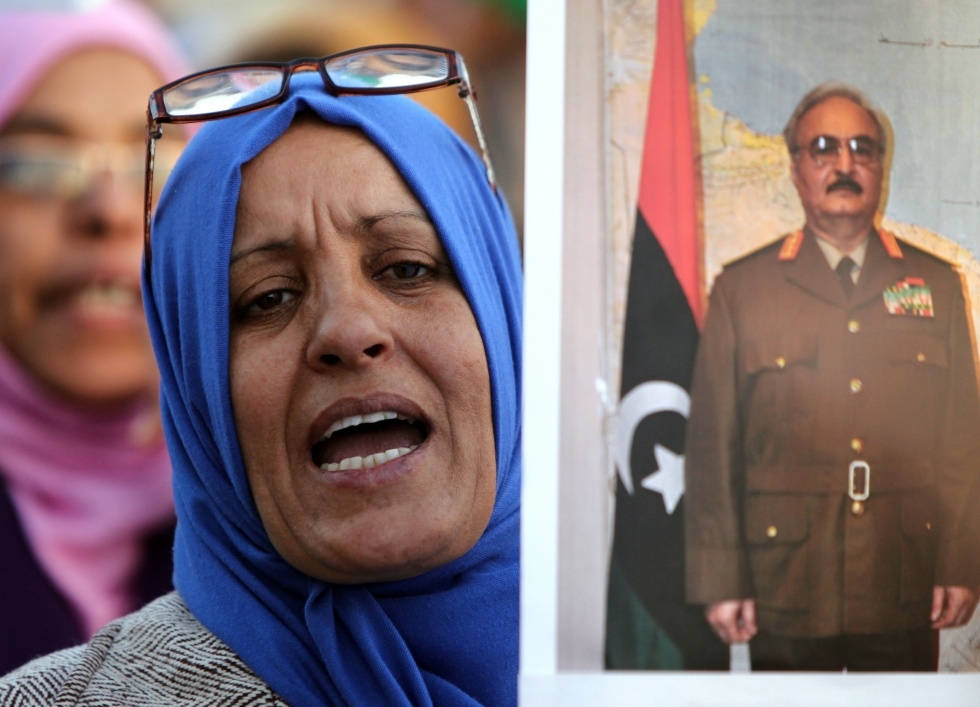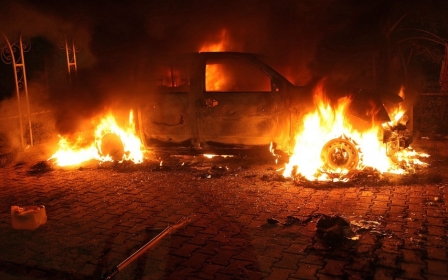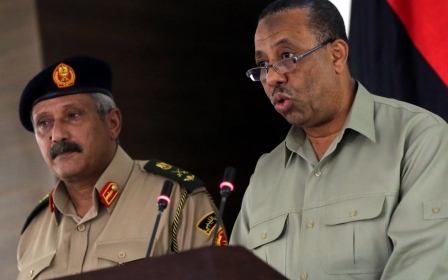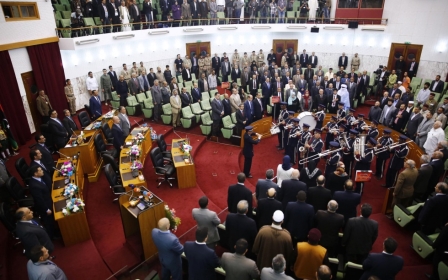No-fly zone for Benghazi after fighting kills 79

Libyan authorities have imposed a no-fly zone over the troubled city of Benghazi after Friday’s fighting there left 79 dead.
In a joint press conference on Saturday evening, the President of the Libyan General National Congress Nuri Abusahmain read out a statement saying that any plane circling above Benghazi without prior permission would be shot down.
According to Libyan news site al-Wasat, Abusahmain remarked that Haftar’s actions called to mind Gaddafi’s tactics during the revolution, particularly in his use of “a media campaign to spread lies.”
“We will catch up with all those who participated in this attempted coup”, he said.
He also called on citizens of Benghazi to “come together to overpower these rebels and protect Benghazi, the spark of the revolution.”
New MEE newsletter: Jerusalem Dispatch
Sign up to get the latest insights and analysis on Israel-Palestine, alongside Turkey Unpacked and other MEE newsletters
Reuters reports that families in Benghazi have responded to a call from Haftar to flee the city, driving out of western parts of the city on Saturday.
Haftar had declared that, though his troops had withdrawn for tactical reasons, they would be launching a fresh onslaught against militia groups in the city.
Meanwhile, the Libyan news site Dunya al-Watan is reporting that Haftar survived an “assassination attempt” on Saturday morning close to his headquarters.
According to the site, three of his party were killed and 12 injured in the attack, with Haftar lightly injured after a remotely-controlled IED exploded on the road leading to his base in Benghazi.
Khalifa Haftar, who led Friday’s attacks in Benghazi in what he called an attempt to “purge” the town of terrorists, has since denied that the incident was a coup.
In a televised interview broadcast by local Libyan channels on Saturday evening, he said that the fighting was a “response to calls from the Libyan people.”
He also used the interview to accuse “some of those in power of colluding with terrorists.”
He responded to claims by Libya’s Chief of Staff Abdel Salam al-Obeidi that he had acted with no legitimacy, saying that “our legitimacy comes from the Libyan people – we want Libya to be free of terrorism.”
Haftar has been the subject of an arrest warrant since February 2014, when he announced that the government of Libya should be dissolved.
The analyst Mohamed Eljarh told MEE that after the warrant was issued, Haftar continued moving freely around Benghazi and other parts of eastern Libya.
Middle East Eye delivers independent and unrivalled coverage and analysis of the Middle East, North Africa and beyond. To learn more about republishing this content and the associated fees, please fill out this form. More about MEE can be found here.




